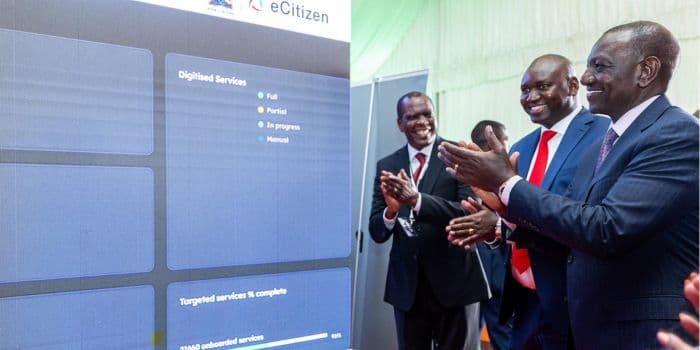We're loading the full news article for you. This includes the article content, images, author information, and related articles.
Kenya’s Immigration PS Belio Kipsang said the country pays KSh1.1 billion yearly to three firms maintaining the eCitizen platform, arguing the costs were needed and contracts were competitively awarded, amid audit findings of unsigned multi-million contracts.

Nairobi, Kenya — 2025-09-09 11:05 EAT. Principal Secretary Belio Kipsang confirmed that three private firms receive a combined KSh 1.1 billion per year (roughly KSh 115–120 million monthly) to maintain the government’s eCitizen platform. This comes as Auditor-General Nancy Gathungu flagged about KSh 7.05 billion in payments lacking formal agreements.
What happened now: On Tuesday, PS Belio Kipsang defended the payments to the tech firms—Webmasters Kenya, PesaFlow, and Olive Tree—saying contracts were competitively tendered and essential for daily operations. He noted daily revenue through eCitizen reached KSh 750 million to 1 billion.
Why it matters: The payment structure supports critical digital service delivery but accountability weaknesses could undermine public trust and fiscal oversight.
Status: Confirmed. Oversight tightening ongoing.
The eCitizen platform, originally developed by Webmasters Kenya, was acquired by the government in 2023.
It now hosts approximately 22,000 services and replaced earlier systems that processed much lower daily revenue.
Recent audit reports have revealed irregularities including unauthorized charges, lack of signed SLAs, and misallocated funds.
Relevant statutes: Public Finance Management Act, Public Procurement and Asset Disposal Act, and Treasury regulations mandate transparent contracts and oversight for MDA vendor engagements.
Mandates: Directorate of eCitizen Services manages operations; National Treasury oversees fiscal compliance; Auditor-General audits performance.
Required next steps: Formal service-level agreements must be executed. Oversight mechanisms against vendor misconduct need strengthening.
PS Belio Kipsang: “Payments were competitively tendered… funds are needed to keep the system running efficiently… convenience fees support daily maintenance.”
Auditor-General Nancy Gathungu: Identified over KSh 7.05 billion in unsigned payments and discrepancies in service provider documentation. Warned these weaken accountability.
Treasury PS (Chris Kiptoo): Earlier dismissed claims of lost funds, but admitted over-collection of convenience fees and absence of SLAs.
Payments to service providers: ~KSh 1.1 billion/year (~KSh 115–120 million/month).
eCitizen revenue: ~KSh 750 million to 1 billion/day.
Audit irregularities:
KSh 7.05 billion in payments with no formal agreements.
KSh 1.8 billion overcharged via flat convenience fees.
KSh 492 million paid to unauthorized entities.
Governance: Lack of SLAs and vendor oversight may expose government to legal, financial, and operational risks.
Public trust: Citizens demand transparency. Continued oversight gaps may erode trust in digital public services.
Fiscal control: Unchecked vendor payments and over-collection of fees undermine budget integrity and public accountability.
What specific service-level agreements are being drafted, and when will they be signed?
Are there plans to recover over-charged convenience fees?
Will the government renegotiate vendor control over infrastructure and software?
How will audit findings shape future procurement policy for digital systems?
2023: Government acquires eCitizen platform; existing vendors retained under maintenance contract.
Financial Year ended June 30, 2024: Auditor-General flags unsigned agreements and irregular collections.
2025-09-09: PS Kipsang defends payments; emphasizes need for SLAs and improved oversight.
Next official action: Signing of formal SLAs and policy revisions for vendor contracts.
Signals: Parliamentary or PAC calls for explanation; Treasury action on fee refunds; vendor renegotiations.
Keep the conversation in one place—threads here stay linked to the story and in the forums.
Sign in to start a discussion
Start a conversation about this story and keep it linked here.
Other hot threads
E-sports and Gaming Community in Kenya
Active 9 months ago
The Role of Technology in Modern Agriculture (AgriTech)
Active 9 months ago
Popular Recreational Activities Across Counties
Active 9 months ago
Investing in Youth Sports Development Programs
Active 9 months ago